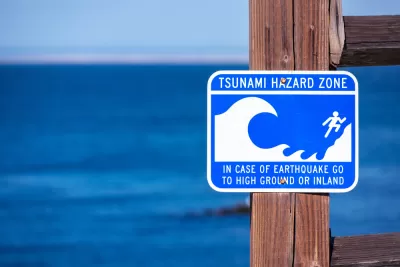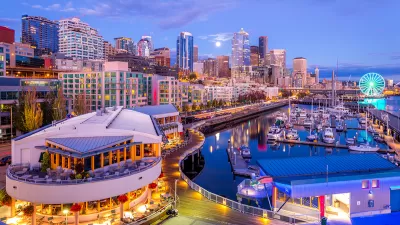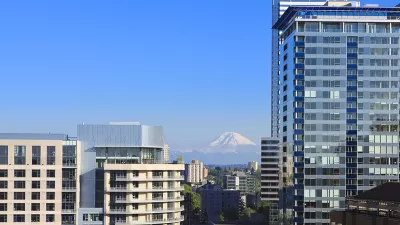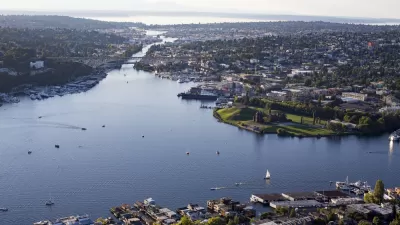The experience of communities and school districts attempting to build elevated structures for residents to wait out the high water of a tsunami, an inevitable threat in the Pacific Northwest, has been challenging and impossible to differing degrees.

“A vast body of geological and historical evidence shows that the question is not whether [a tsunami in the Pacific Northwest] will happen, but when,” writes Eric Scigliano for Crosscut.
Given that certainty, “[y]ou might think it would be hard to argue with a tsunami,” but as Scigliano details in this article, regional officials have found a way to politicize resilience efforts to the point of complete stagnation.
As evidence of the frustrations of resilience planning, Scigliano cites the examples of four school bonds, proposed to fortify endangered coastal schools. The experience of approving these bonds has produced a mixed bag of success and failure—with success in Ocasta, setbacks in Ocean Shores, and failure in Long beach, for example.
Scigliano also notes a different example, of cooperation, set by nearby Native tribes. A lot more detail and insight is available from the source article, below.
FULL STORY: How politics have stalled tsunami prep efforts on the WA coast

Alabama: Trump Terminates Settlements for Black Communities Harmed By Raw Sewage
Trump deemed the landmark civil rights agreement “illegal DEI and environmental justice policy.”

Study: Maui’s Plan to Convert Vacation Rentals to Long-Term Housing Could Cause Nearly $1 Billion Economic Loss
The plan would reduce visitor accommodation by 25% resulting in 1,900 jobs lost.

Why Should We Subsidize Public Transportation?
Many public transit agencies face financial stress due to rising costs, declining fare revenue, and declining subsidies. Transit advocates must provide a strong business case for increasing public transit funding.

Wind Energy on the Rise Despite Federal Policy Reversal
The Trump administration is revoking federal support for renewable energy, but demand for new projects continues unabated.

Passengers Flock to Caltrain After Electrification
The new electric trains are running faster and more reliably, leading to strong ridership growth on the Bay Area rail system.

Texas Churches Rally Behind ‘Yes in God’s Back Yard’ Legislation
Religious leaders want the state to reduce zoning regulations to streamline leasing church-owned land to housing developers.
Urban Design for Planners 1: Software Tools
This six-course series explores essential urban design concepts using open source software and equips planners with the tools they need to participate fully in the urban design process.
Planning for Universal Design
Learn the tools for implementing Universal Design in planning regulations.
Caltrans
Smith Gee Studio
Institute for Housing and Urban Development Studies (IHS)
City of Grandview
Harvard GSD Executive Education
Toledo-Lucas County Plan Commissions
Salt Lake City
NYU Wagner Graduate School of Public Service





























